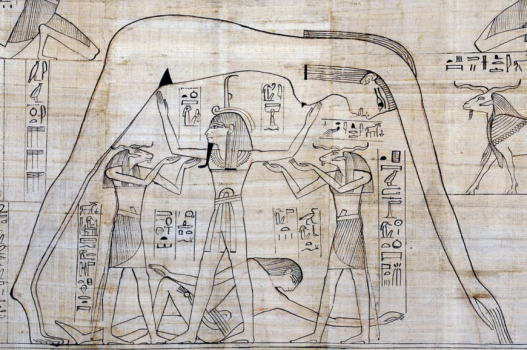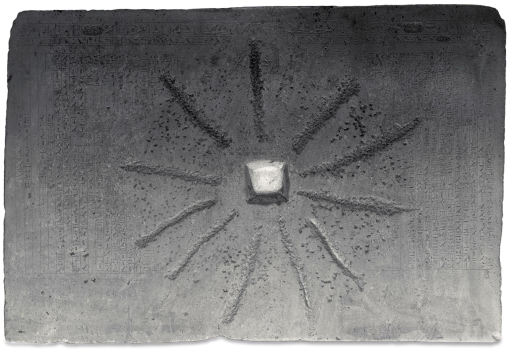The church views Genesis as a single, literal, historical, chronological, mostly first-hand account stretching from the beginning of the universe to the beginning of the nation of Israel. The academic community disagrees. It sees Genesis as a compilation of works, some of them mythological, and cobbled together well after-the-fact. Who is right?
Here, I'd like to explore some of the ideas coming from academic disciplines - archaeology, anthropology, Assyriology, Biblical criticism, and comparative religion.
Idea #1 - The Kenite Hypothesis
When God laid the foundations of the earth, and made the clouds its garments, and when the morning stars sang together (Job 38)... Moses wasn't there. When Noah brought the animals into the ark 2-by-2, and the door was shut and the fountains of the deep broke forth... Moses wasn't sitting in the crow's nest taking notes. And when Abraham met the LORD of all creation and cut a covenant in which he was promised to become a father of nations... Moses was absent.
But Moses writes about all these things. How did he know? He must have got information from someone else. But who?
The Kenite Hypothesis supposes that the whole religion of Moses - the worship of Yahweh - comes from the Kenites, along with many/most of the foundational documents that make up the book of Genesis. That's a big claim. Why?
Exodus 3:1 tells us that Moses married the daughter of Jethro, who was "The Priest of Midian." In Judges 1, we find out that Jethro was not a Midianite, but a Kenite. 1Ch 2:55 tells us that his descendants included 3 clans of scribes. It seems likely that a clan of scribes had written records. And Moses, as the son-in-law of the priest... he had access. He lived as part of their tribe for 40 years.
When Moses encountered God on Mt Horeb, it was in their territory. When he was sent back to Egypt to liberate his people... it was as a priest, like his father-in-law. Once the Israelites come out of Egypt, Moses marches them straight back to that same mountain, and before they meet God... they meet Jethro. Upon the meeting, Moses himself says, "the God of my father was mine help, and delivered me from the sword of Pharaoh." (Exodus 18) It seems that the father in question was Jethro, and so the God in question is the God of Jethro.
The rest of Exodus 18 is worth a read. Moses does obeisance to Jethro. Jethro blesses Moses. Jethro offers sacrifices for Moses and Aaron (who won't be anointed priest for about 12 more chapters). Jethro gives Moses the Israelites whole system of judges, and...
Exodus 18:14 - So Moses hearkened to the voice of his father in law, and did all that he had said.
And this continues with the later Kenites. They seem to have allied themselves to Israel in the wilderness (Judges 1). When each tribe of Israel sent a spy into the Promised Land (Numbers 13), the representative for Judah... Caleb... was actually a Kenite (Judges 1). When Judah had been conquered, Caleb and his family were allotted cities alongside the Jews, including Hebron, which then became the first capital of Judah. The first Judge of Israel in the book of Judges, Othniel, was a Kenite (Judges 3).
Other parts of the Bible seem to confirm a southern origin for the Lord Himself. Habakkuk 3 says "God came from Teman, the Holy One from Mount Paran." But Teman is the region of the Kenites, and Mt Paran is a stronghold of Edom; not Israel. The Kenites are one of the tribes of the Edomites (Genesis 36, Numbers 24). In Zechariah 9, the Lord is seen to come from Teman on whirlwinds. The whole book of Job is set in the land of Uz, again a part of Edom. Job's friend Eliphaz comes to comfort him, and Eliphaz is also from Teman, the Kenite homeland.
Archaeology lends support to the idea as well. In the 1970's, inscriptions were found at Kuntillet Ajrud (in the Sinai peninsula) that refer to "Yahweh of Teman."
But this creates a problem. If the history that Moses delivered to us comes from the Kenites, then how can it be the history of Israel?
The claim that all-of-the-things that come to us from Moses and Israel, really come from Jethro and his Kenites, isn't so easily dismissed.






